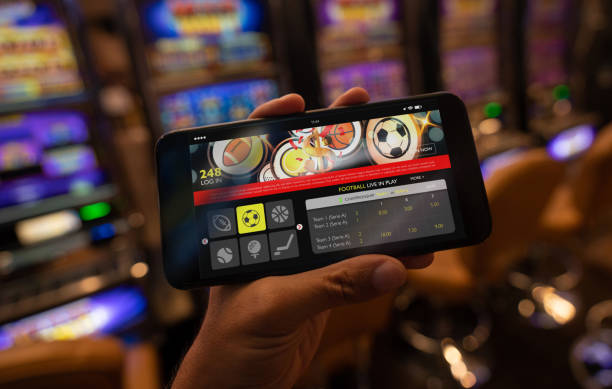The Psychology of Gambling 52

The Psychology of Gambling
The Psychology of Gambling delves into the fascinating interplay between human behavior and the world of chance. The thrill of gambling captivates millions, but the psychological aspects behind it are often underestimated. Insights into this complex relationship can enhance our understanding of addiction, risk appetite, and social influences in gambling. To further explore techniques in gambling, you can check out The Psychology of Gambling https://in-mostbet-casino.com/cs/, where various strategies are discussed.
Understanding the Allure of Gambling
At its core, gambling is a risk-oriented activity. For many, it offers an escape from reality and a chance to experience a whirlwind of emotions, from excitement to despair. The psychological allure of gambling is rooted in several factors, including:
- Variable Reward:** The unpredictability of outcomes creates a scenario where players experience a rush, often referred to as the “gambling high.” This high can lead to a cycle of repeated play, as the brain releases dopamine, reinforcing the behavior.
- Social Interaction:** Many gambling activities, from poker to betting on sports, involve social elements that make the experience more enticing. The camaraderie and competition can create bonds among players, further motivating participation.
- Illusion of Control:** Gamblers often believe that they can influence the outcome of random events through skill, strategies, or favorable rituals. This belief is known as the illusion of control, fueling their continued engagement.
The Role of Cognitive Biases

Our brains are wired to recognize patterns and make decisions, but cognitive biases can distort our judgment, especially in the realm of gambling. Common cognitive biases include:
- Confirmation Bias:** Gamblers may focus on winning experiences while downplaying losses, reinforcing their desire to keep playing based on false interpretations of their successes.
- Gambler’s Fallacy:** The mistaken belief that past events influence the likelihood of future outcomes can lead gamblers to make poor decisions, such as believing that a slot machine is “due” for a win.
- Availability Heuristic:** Gamblers might rely on easily recalled experiences (like recent wins) to gauge their likelihood of success instead of considering the odds objectively.
The Spectrum of Gambling Behavior
Gambling behavior exists on a continuum, ranging from casual participation to compulsive gambling behavior. Understanding where one falls on this spectrum is crucial for mental health and well-being:
- Recreational Gamblers:** These individuals engage in gambling as a form of entertainment, setting limits and often maintaining a healthy balance with their finances and personal lives.
- At-risk Gamblers:** This group begins to show signs of problematic behavior, such as increasing time and money spent on gambling, which may lead to negative consequences.
- Compulsive Gamblers:** Also known as pathological gamblers, these individuals experience severe distress and disruption in their lives due to uncontrollable gambling, often leading to financial ruin and strained relationships.
Psychological Impacts of Gambling Addiction

Gambling addiction can severely affect mental health and well-being. The impacts include:
- Increased Anxiety and Depression:** The financial and personal turmoil resulting from compulsive gambling often leads to higher levels of anxiety and depression.
- Social Isolation:** The stigma associated with gambling addiction can result in individuals withdrawing from social connections, exacerbating feelings of loneliness and despair.
- Impaired Decision-Making:** Compulsive gamblers may neglect responsibilities, leading to poor decisions that further entrench their situation.
Strategies for Responsible Gambling
To mitigate the risks of gambling, it’s essential to engage in responsible practices:
- Set Limits:** Establish time and monetary limits before participating to control the potential harmful effects of gambling.
- Stay Informed:** Understanding the odds and mechanics of gambling can help players make more educated decisions.
- Seek Support:** If gambling begins to feel out of control, seeking help from professionals or support groups is vital to preventing further harm.
Conclusion
The Psychology of Gambling is a multifaceted domain that combines the thrill of risk and reward with complex human emotions and behaviors. By delving into the cognitive biases, the spectrum of gambling behavior, and the psychological consequences of addiction, we can better understand and address the challenges posed by this pervasive activity. Awareness, education, and responsible practices are crucial in fostering a healthier approach to gambling that prioritizes mental well-being.

